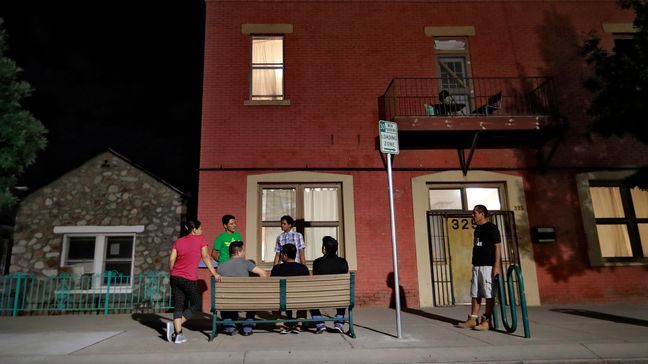
The Future of El Paso’s Largest Migrant Shelter: A Legal Perspective
Annunciation House: A Beacon of Hope?
The focal point of this contentious issue is the future of the Annunciation House in El Paso, Texas. Established as a ministry of the Catholic Church, the organization provides shelter, legal services, and other necessities to migrants entering the United States. Despite its noble mission, the Annunciation House faces a daunting challenge: Texas Attorney General Ken Paxton is pushing for its closure, citing allegations of facilitated human smuggling.
The Accusation of Facilitating Illegal Immigration
Representing the Attorney General’s office, Ryan S. Baasch argue that Annunciation House “provides these services to illegal aliens because they are illegal aliens.” In essence, they suggest that the organization knowingly assists individuals violating immigration laws. This accusation is not to be taken lightly, as it raises serious questions about the intersectionality of humanitarian aid and the legality of actions.
Defending the Annunciation House
In response, Amy Warr, the lawyer representing Annunciation House, vehemently denies these allegations. She maintains that their operation is not clandestine – they do not hinder the actions of the law enforcement agencies or hide undocumented immigrants from detection. Rather, Annunciation House provides much-needed relief and assistance to those sent their way by Immigration and Customs Enforcement (ICE) after proper processing.
Further Controversies: Harboring Laws and Law Enforcement
One of the key issues under scrutiny is whether Annunciation House prevents law enforcement agencies from entering the premises after an incident involving one of their guests. The Attorney General’s office presents this as evidence of their allegations, while Amy Warr counters there is no record of such an act.
The Legal Implications: Anti-Harboring Laws
The ongoing debate about the operations of Annunciation House leads to further analysis of the state’s anti-harboring laws. This piece of legislation criminalizes the act of concealing or harboring a person from law enforcement detection, knowing that the person is in the U.S. illegally. Both sides are utilizing this law to justify their stance. The Attorney General’s office views it as a tool to deter illegal immigration, while the defense emphasizes the absence of evidence supporting claims of concealment.
Ripple Effects and Wider Implications
The closure of Annunciation House would have wide-reaching effects. El Paso County Attorney Christina Sanchez warns against this move, citing potential increases in crime, disease, and government resources’ strain. This very act of shutting down institutions that offer transitional services to migrants could inadvertently contribute to a surge in public health concerns and local crime.
The Importance of Housing Facilities in Immigration
Shelters like Annunciation House play a vital role in the immigration process, providing necessary support and maintaining order. The potential closure of such an organization propels us to question how we can balance immigration laws while preserving the human rights of those seeking aid. How do we define the line between providing necessary humanitarian aid and abetting illegal activities?
Conclusion: Awaiting the Verdict
As we eagerly anticipate the Texas Supreme Court’s resolution, the uncertainty surrounding the future of Annunciation House hangs heavily. The verdict of this case will shape the future of humanitarian aid in Texas and potentially the rest of the country. No matter the result, one fact remains: balancing the rule of law and the urgent needs of humans seeking refuge is a complex issue that requires careful thought, understanding, and empathy.
Originally Post From https://cbs4local.com/newsletter-daily/texas-supreme-court-to-hear-case-on-annunciation-house
Read more about this topic at
Chicago Migrant Shelter Network Controversy

